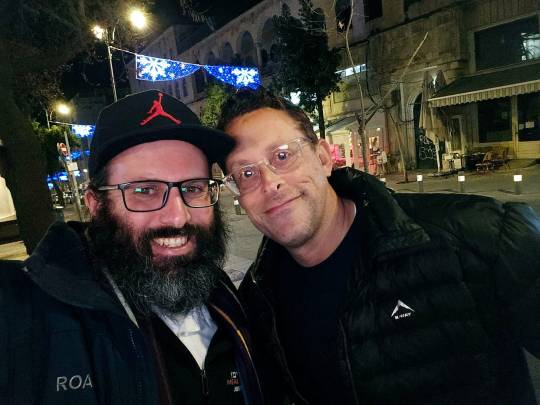#Chatzot
Text
United Souls - Extracts from New Book Section 1 - by Eli Goldsmith - Part 42 - Pesach & Don’t #Passover - 2020-24 - Truth & Completion!
Dedicated to the real lonely Souls, soldiers & defenders of Yisrael… & Souls Globally – the United Souls that know The Truth of their Souls & for all those that know not yet. A Healthy Spring all 🙂 – With Pesach and Sefirah days already on the way… Leave a comment
Reviewing the Madness of 2020 and the beginning months of 2021!
I don’t know when your soul will encounter this book, but whenever…

View On WordPress
#Adar#Aliya#Baal Shem Tov#Bereshit#Bless#Blessing#Brooklyn#Charles Sakkal#Chatzot#Chazal#Chodesh#Chumush#Connect#DafYomi#Efrat#Emuna#Emunah#Faith#Family#finding preferred LANGUAGE#Floyd Mayweather#Gaza#Gedale#Gratitude#Happy#health#holyland#Inspires#Israel#Israel 365
0 notes
Text
Happy Purim from Unity Bookings & Unity Marketing - Updated Unity Projects Site!
United Souls by Eli Goldsmith – a Nourished Soul, Shabbat Shalom, Intimacy Beyond & The Synergistic Journey Together!
Dedicated to the real lonely Souls, soldiers & defenders of Yisrael… & Souls Globally – the United Souls that know The Truth of their Souls & for all those that know not yet. A Healthy End to Winter all 🙂 – With Spring already on the way…
🚀✨ Exciting News! Our Home Page Just Got…

View On WordPress
#"Believers"#&039;Parnasa&039;#Adar#Alex Clare#Aliya#Bereshit#Bless#Blessing#Brooklyn#charity#Charles Sakkal#Chatzot#Chazal#Chumush#Connect#Contribute!#DafYomi#Efrat#emuna#Emunah#Esther#Event Merch#Faith#family#finding preferred LANGUAGE#Gaza#go#Gratitude#happy#Harvey Goldsmith
0 notes
Text
Midnight, as the furthest point in the darkness, is a particularly haunting time. Kabbalists connected their spirituality to midnight. Rabbi Abraham Halevy, of sixteenth-century Safed, reported that the pious Jews of his town would awaken each night in order to recite a special set of prayers at midnight. They sat on the ground, wrapped in black, and lamented the destruction of the ancient Temple in Jerusalem. At midnight, the darkest moment in the daily cycle, the mystics cried and prayed over the darkest moment in the spiritual life of the Jewish people. But the lamentations, with all their sadness, were also imbued with hope. After all, midnight was the furthest one could fall into darkness. From then on, the movement was toward sunrise, toward redemption.
The mystics associated the experiences of the Jewish people with the cycle of the sun. To this day, the midnigh vigil—known as Tikkun Hatsot— is observed among pious Jews.
— Rabbi Marc D. Angel, PhD, The Rythms of Jewish Living: A Sephardic Exploration of Judaism’s Spirituality
41 notes
·
View notes
Text
FYI for those of my Jewish followers who may be interested: given The Current Situation, a number of communities are encouraging people to take on Yom Kippur Katan tomorrow as a public fast day.
If you would like to be a part of this, you could fast for the full day (dawn to nightfall) or until halachic midday (chatzot). You can use this website to find the exact dawn/midday/nightfall times for your location:
As always when making fast-related decisions, please be mindful of your own health and safety, which take priority.
60 notes
·
View notes
Text

From the Wikipedia page for Tikkun Chatzot, the prayer said after midnight in some Jewish communities.
107 notes
·
View notes
Text

from "Gateway to Sleep 5: Tikkun Chatzot - The Midnight Rite" by Rabbi Sarah Bracha Gershuny
1 note
·
View note
Text
A Nation That Will Dwell in Solitude

In the past two issues, we wrote about the importance of waking up and getting out of bed at midnight. We focused on two tasks and their accompanying benefits: (1) by learning Torah after midnight, we draw down a thread of chesed throughout the day, and (2) by reciting Tikkun Chatzot, we help raise the Shechinah from the dirt, helping to merit in the rebuilding of the Holy Temple and ushering in the final redemption. In this issue, we will add a third important reason why we should wake up and get out of bed while it is still night.
We are all familiar with the story of Balak hiring the prophet Bilaam to curse the Nation of Yisrael. But every time Bilaam opened his mouth, he praised them instead of cursing them, for example (Bemidbar 23:9): כִּי־מֵרֹאשׁ צֻרִים אֶרְאֶנּוּ וּמִגְּבָעוֹת אֲשׁוּרֶנּוּ הֶן־עָם לְבָדָד יִשְׁכֹּן וּבַגּוֹיִם לֹא יִתְחַשָּׁב (For I see it from the top of the rocks, and from the hills I observe it. Behold! It is a nation that will dwell in solitude, and it will not be considered among the [other] nations). What is the meaning of ‘a nation that will dwell in solitude’? And why is this statement one of praise? Although introverts readily appreciate the benefit of being alone, a highly extroverted individual might actually dread it! So how is being alone something praiseworthy for everyone, for the entire nation?
Lamenting why so much suffering and tragedies befall the Jewish People, the Chofetz Chaim writes (Likutei Amarim 10): ולא יסתפק אדם במה שמתפלל השמונה-עשרה שלש פעמים בכל יום, אלא כמה פעמים ביום צריך לשפוך תפילות ובקשות בינו לבין עצמו כשהוא בביתו מעומקא דליבא .כי השלש תפילות הן אצלו כבר שגורות בפיו ואינו נותן לב להם כל כך; מה שאי כן אם יתבונן כל אדם בינו לבין עצמו ויעשה חשבון נפש על מצבו ומעמדו (A person should not be satisfied with the three times he prays the Shemoneh Esrei each day; rather, many times throughout the day he needs to pour out his prayers and requests, privately, by himself, when [for example] he’s in his house, from the depth of his heart, because his mouth is already accustomed to saying the three [formal] prayers, and as a result, he doesn’t pay attention to them all that much. But that’s not the case if everyone were to be introspective and do a cheshbon nefesh [personal examination] on his situation and his standing in life). He continues to explain that we are not answered in our three regular daily prayers because we don’t pour out of heart to Hashem when we pray. Instead, we’re praying like a machine. Plug it in, set the speed dial to ‘rapid’, push the ‘start’ button and away it goes. If we spoke to our friend or spouse that way, do you think they would be particularly interested in listening to what we had to say? Likewise, do you really think Hashem is any different in this regard?
The Chofetz Chaim is speaking about the need for everyone to spend time each day—even throughout the day—praying to Hashem in one’s own words, a practice known as hitbodedut [private, secluded prayer].
R' Nachman taught (Likutei Moharan II:25): הַהִתְבּוֹדְדוּת הוּא מַעֲלָה עֶלְיוֹנָה וּגְדוֹלָה מִן הַכֹּל דְּהַיְנוּ לִקְבֹּעַ לוֹ עַל־כָּל־פָּנִים שָׁעָה אוֹ יוֹתֵר לְהִתְבּוֹדֵד לְבַדּוֹ בְּאֵיזֶה חֶדֶר אוֹ בַּשָּׂדֶה וּלְפָרֵשׁ שִׂיחָתוֹ בֵּינוֹ לְבֵין קוֹנוֹ...שֶׁיְּקָרְבוֹ אֵלָיו לַעֲבוֹדָתוֹ בֶּאֱמֶת (The practice of doing hitbodedut is very exalted and greater than everything, i.e. to fix a time for oneself, at least one hour or more, to seclude oneself alone in some room or in the field, to lay out one’s conversation in private with one’s Creator…that he would be able to draw closer to Him and serve Him in truth). It doesn’t make any difference if we feel that we are already close to Hashem or if we feel that we are too far from Him to be of importance or if we can’t even open up our mouths to say anything, the main point is to spend time in solitude knowing that you’re sitting with Hashem. This in and of itself is very, very good. In fact, there is nothing greater than this.
Regarding the best time and place for hitbodedut, we read in Likutei Eitzot, Hitbodedut 7: עִקַּר הַהִתְבּוֹדְדוּת הוּא בַּלַּיְלָה שֶׁאָז הַכֹּל יְשֵׁנִים וְגַם טוֹב שֶׁיִּהְיֶה הַמָּקוֹם חוּץ מֵהָעִיר שֶׁיֵּלֵךְ בְּדֶרֶךְ יְחִידִי דְּהַיְנוּ בְּמָקוֹם שֶׁאֵין בְּנֵי אָדָם הוֹלְכִים שָׁם אֲפִלּוּ בַּיּוֹם (The essence of hitbodedut is at night because then everyone is asleep, and it is also good that he should be in a place outside the city, that he walk to a solitary place, i.e. a place where even by day people don’t go). The reasons for this are because the quietness of night is the best time for obtaining clarity about oneself because the cares of the world are decreased. Although these parameters are optimal if one is able to fulfill them, they should never prevent someone from spending his hour of hitbodedut during the day in a room of his house if that works for him. The main point is to spend one interrupted hour alone with Hashem, each and every day. Once you get used to this hour, it should become the best hour of your day.
But what is the real purpose of hitbodedut? Is it to tell Hashem all the things we need or want in life, to make our requests known to Him—“I need a good spouse. I need a nice apartment. I need a high paying job. I need…”? No. That’s the purpose (in part) of the Shemoneh Esrei. The purpose of hitbodedut is something completely different. Simply put, it is to work on oneself, to fix one’s deficiencies and faults, to achieve self-nullification, thus becoming part of the necessary reality. Let’s explain.
Two kinds of realities exist: necessary reality and dependent reality. Hashem, of course, is the ultimate and only necessary reality. Everything created in all the worlds is just a dependent reality. None of it must exist. All of it came into existence by the Creator who spoke it into existence, as it is written (Tehillim 33:6, 9): בִּדְבַר יְיָ שָׁמַיִם נַעֲשׂוּ וּבְרוּחַ פִּיו כׇּל־צְבָאָם...כִּי הוּא אָמַר וַיֶּהִי הוּא־צִוָּה וַיַּעֲמֹד (By the word of Hashem heaven was made, and by the breath of His mouth, all of their host…He spoke and it was, He commanded and it stands). The moment Hashem created the soul of Adam ha‑Rishon to have free will to choose and to do His will, reality changed. All of the created worlds acquired a certain aspect of the necessary reality, i.e. all the upper and lower worlds need to exist in order for Hashem’s purpose to be fulfilled. And what is that purpose? It is to return and be encompassed in one’s Source, in the only true, independent necessary reality. This is all explained in detail by R' Nachman in L.M. 52, but here’s a short summary: וְעַל־כֵּן אָז דַּיְקָא כְּשֶׁעוֹשִׂין רְצוֹנוֹ נִכְלָל הָעוֹלָם בִּבְחִינַת מְחֻיַּב הַמְּצִיאוּת כַּנַּ"ל כִּי כָּל מַה שֶּׁעוֹשִׂין רְצוֹנוֹ יוֹתֵר הֵם נִכְלָלִין בְּיוֹתֵר עִם כָּל הָעוֹלָמוֹת הַתְּלוּיִים בָּהֶם בְּחִיּוּב הַמְּצִיאוּת (Therefore, it is specifically then, when we [the inheritors of the mission and soul of Adam ha‑Rishon, i.e. Yisrael] do His will, that the world is included in an aspect of the necessary reality, for the more we do His will, the more we are included together with the worlds which are dependent upon them, in the necessary reality).
This is really an amazing and awesome truth! Even though the world and everything in it, including ourselves ‘start off’ as a dependent reality in that everything is created by Hashem and has no independent existence in and of itself, when the object and purpose of His creation actually perform the will of its Creator, then not only do all the worlds acquire a certain aspect of the necessary reality but, more importantly, the people who perform His will also acquire a certain aspect of the necessary reality. And it is a matter of degree. The more we do Hashem’s will, the more we are encompassed in His Oneness, and the more the world and everything in it, including ourselves, become part of this same necessary reality.
Now the logical question is: How do we actually achieve becoming encompassed in one’s Source so that we move from being a dependent reality to being a part of the necessary reality? R' Nachman explains (L.M. 52): אַךְ לִזְכּוֹת לָזֶה לְהִכָּלֵל בְּשָׁרְשׁוֹ דְּהַיְנוּ לַחֲזֹר וּלְהִכָּלֵל בְּאַחְדוּת הַשֵּׁם יִתְבָּרַךְ שֶׁהוּא מְחֻיַּב הַמְּצִיאוּת זֶה אִי אֶפְשָׁר לִזְכּוֹת כִּי־אִם עַל־יְדֵי בִּטּוּל שֶׁיְּבַטֵּל עַצְמוֹ לְגַמְרֵי עַד שֶׁיִּהְיֶה נִכְלָל בְּאַחְדוּתוֹ יִתְבָּרַךְ (However, to merit this, to be encompassed in one’s Source, i.e. to return and be encompassed in the Oneness of Hashem, may He be blessed, who is the necessary reality, is possible only through bitul [self-nullification]. A person needs to nullify himself completely to the point that he becomes encompassed in His Oneness, may He be blessed).
Self-nullification? That seems a bit drastic, if not kind of weird. What does it really mean? Bitul means to negate all of one’s negative character traits and all of one’s physical desires and lusts—anger, impatience, theft, stinginess, harboring grudges, jealousy, laziness, selfishness, stubbornness, ungratefulness, speaking negatively about others, self-justification, lying, lusting after food and drink, lewdness, feasting one’s eyes on that which is forbidden to look at, immodesty, desire for honor and prestige, love of money, arrogance, lack of emunah and bitachon, etc. But isn’t that impossible? R' Nachman assures us that it is very achievable, not just by the tzaddikim, but by all of us. How so? These are his holy words (L.M. 52): וְאִי אֶפְשָׁר לָבוֹא לִידֵי בִּטּוּל כִּי־אִם עַל־יְדֵי הִתְבּוֹדְדוּת (It is impossible to achieve bitul except through hitbodedut). This is the real reason for hitbodedut. It is the most powerful tool available for fixing ourselves. Reading self-help books, listening to lectures and inspirational talks, reading articles (like this one), or even talking to therapists may be fine and dandy, but that will not get us to the goal of our lives, which is to return to our Source and become encompassed in the Infinite for eternity.
But it seems so overwhelming! Perhaps, but that’s why we were given life in the first place, to achieve that which seems so impossible. After all, is anything truly impossible with G‑d? Can He not help us achieve the impossible if we really want it? But we have to be honest. We can’t go into hitbodedut and pretend. The moment we walk out into that field or close that door, we have to be real. We have to speak only truth. Nothing gets fixed without truth. We start with one negative trait and we keep talking to Hashem about it night after night until we negate it. It may take years of concerted effort, but all sincere effort will be rewarded. And when we nullify one negative trait, we move onto the next one, and so on, until we nullify them all. At that point there will be nothing left of us. We will have achieved complete bitul and become nothing, i.e. no-thing—even as Hashem is ‘No-thing’. This is how we prepare for becoming merged into the Eternal Infinite, to be fully encompassed in the necessary reality even as Hashem is the necessary reality.
May G‑d give us strength to be what we were destined to be, a nation that dwells in solitude (not because of government coercion, but voluntarily), each one of us becoming an expert at hitbodedut and achieving his true mission in life.
2 notes
·
View notes
Text
Similarly with the conquest of one’s evil nature.
Despite the fact that the good nature is stronger than the evil, for as explained in previous chapters, “Even a little of the light of holiness dispels much darkness of the kelipah,” yet here, too, the previous rule applies; and thus:
It is impossible to conquer the evil nature with laziness and sluggishness, which stem from sadness and a stonelike dullness of the heart,
but rather with alacrity, which derives from joy and an open i.e., responsive heart that is unblemished by any trace of worry and sadness in the world.
As for the verse, “In every sadness, there will be profit,”1 which means that some profit and advantage would be derived from it,
the wording (“there will be profit”) implies that, on the contrary, the sadness itself has no virtue, except that some profit will ultimately be derived from it.
This profit is the true joy in G‑d, which follows the true i.e., justified sadness over one’s sins, with bitterness of soul and a broken heart, which must come at specific, suitable times.
Hence, the “profit” of sadness is the joy that follows it.
Why should this sadness lead the worshipper to joy? For thereby (through one’s sadness) the spirit of impurity and of the sitra achara is broken and so, too, the “iron wall” that separates him from his Father in heaven,
as the Zohar comments2 on the verse, “A broken spirit, a broken heart, [You will not despise].”3
The Zohar interprets the verse as follows: “A broken spirit of the sitra achara is brought about by means of a broken heart….” Since sadness over one’s sins causes the sitra achara to be broken and the “iron wall” to vanish, it leads one to rejoice—as the Alter Rebbe now goes on to say:
Then the preceding verses will be fulfilled for him: “Make me hear joy and gladness…”4; “Restore to me the joy of Your salvation, and [support me] with Your generous spirit.”5
This joy is the “profit” of sadness, whereas sadness itself is neither “profitable” nor advantageous.
This is the simple reason i.e., apart from the deeper, mystical ones for the practice instituted by the Arizal (Rabbi Yitzchak Luria) of reciting this psalm containing the verses quoted above after Tikkun Chatzot (the midnight prayer) before resuming one’s Torah study—
in order that one should study with the true joy in G‑d that succeeds the remorse of Tikkun Chatzot.
Such joy is of a greater quality than joy which is not preceded by sadness, similar to the distinctive quality of light which follows darkness.
As the Zohar comments6 on the verse, “And I (King Solomon) saw that wisdom surpasses foolishness as light surpasses darkness.”7 Note there, and this will suffice for him who understands.
The Zohar asks: Does it take a Solomon to see this? And it answers that the intention of the verse is that just as darkness contributes to light, for we cannot truly appreciate light unless we have experienced darkness, so does foolishness contribute to the appreciation of wisdom. Similarly in our case, one’s earlier sadness adds strength to the joy which follows it, and this is the “profit” of sadness. Sadness itself, however, is a hindrance in one’s service of G‑d.
Chapter 26 - Likutei Amarim (chabad.org)
1 note
·
View note
Link
This month we’re going to learn Hebrew words relating to periods of time. Today’s word is midnight.
0 notes
Photo

The Zohar & Rebbe Nachman of Breslov stress the importance of Tikkun Chatzot (Midnight Lamentations), which is also the time that King David would play his harp & compose his psalms. It is this act of lamentations that shifts sleep & dreams from a place of Freudian, yetzer hara desires to an elevated space of rejuvenation & connection. King David said, “At midnight, I will rise…” as he wrote, “Awake, my glory; awake O harp & lyre! I will awaken the dawn.” Rebbe Nachman expands on ruach & rhythm in possibly his most famous & fundamental teaching from Likutey Moharan, also known as “Azamra“ (‘I will sing’). Rabbeinu teaches that judging everyone & yourself favorably, always looking for the good points, is essentially the secret to blessings & happiness. It also ensures switching from a frame of mind of din (judgment) & speaking lashon hara, to one of seeing the good & speaking only positively. Rabbeinu explains that sifting the good from the bad is how melodies are made. & we see this through playing a musical instrument, which gathers the good ruach from the ruach of gloom/depression. In essence, music is made through the separation of good from evil, by selecting & gathering the good points & good notes from the bad; that is how beautiful songs are created. & so, when a person doesn’t let themself fall, but revives oneself by searching & seeking out the good points in themselves & others, gathering & separating those good points from evil & impurity within, this is how melodies of oneself & harmony with each other manifests, this is how we are able pray, sing, & give praise to Hashem in teshuva (a return & a repentance), which brings life, happiness & ultimate unification. The more we are careful to only uplift each other through speech (especially when the person isn’t present), the more we are aligned with positivity & light. If we continue to shine our own light, we bring forth everyone’s light, which is the only way for us to bring awareness to the light of the infinite & usher in the final redemption.🤍🕊 https://www.instagram.com/p/CdqiusorH8A/?igshid=NGJjMDIxMWI=
1 note
·
View note
Text
WATCH VIDEO: Tikkun Chatzot, King David's Humility, Hitbodedut-Tehillim Class-Psalm 16
WATCH VIDEO: Tikkun Chatzot, King David’s Humility, Hitbodedut-Tehillim Class-Psalm 16
(Description of video contents, below video)
In this short video, Chaya Rivka Zwolinski of BreslovWoman discusses Psalms Chapter 16.
In this video, we discuss the 16th chapter of Psalms.
Recommended reading: The Power of Psalms, published by The Breslov Research Institute available at books.breslov.org
Segula: To find a thief!
TopicsTikkun HaklaliThe Meaning of MichtamHumility and…

View On WordPress
#Bitachon#Breslov Classes and Events#Breslov for women#Breslov Woman#Chaya Rivka Zwolinski#hitbodedut#humility#King David#Middot#personal growth#Psalms#Rebbe Nachman#sixteenth chapter of psalms#Talmud#Tehillim#Tikkun Chatzot#video
2 notes
·
View notes
Text
Happy Purim from Unity Bookings & Unity Marketing - Updated Unity Projects Site!
Happy Purim from Unity Bookings & Unity Marketing – Updated Unity Projects Site!
United Souls by Eli Goldsmith – a Nourished Soul, Shabbat Shalom, Intimacy Beyond & The Synergistic Journey Together!
Dedicated to the real lonely Souls, soldiers & defenders of Yisrael… & Souls Globally – the United Souls that know The Truth of their Souls & for all those that know not yet. A Healthy End to Winter…

View On WordPress
#Adar#Alex Clare#Aliya#Bereshit#Bless#Blessing#blog#Brooklyn#Charles Sakkal#Chatzot#Chazal#christianity#Chumush#Connect#DafYomi#Dreams#Efrat#Emuna#Emuna Tour#Emunah#Esther#Event Merch#Faith#Family#finding preferred LANGUAGE#Gaza#Gedale Fenster#Go#Gratitude#Happy
0 notes
Text
Happy New You and Souls Shovavim True Love Focus!
United Souls – Extracts from New Book TBA – by Eli Goldsmith – Part 38 – Happy New You and Souls Shovavim True Love Focus!
Get #Antisoulism Trending Please! Dedicated to the real lonely Souls, soldiers & defenders of Yisrael… & Souls Globally – https://eligoldsmith.substack.com/p/united-souls-extracts-from-new-book-c74 – the United Souls that know The Truth of their Souls & for all those that…

View On WordPress
#Alex Clare#Aliya#All About Kindness#Amber Heard#Army#Bava Kama#Ben Shapiro#Bereshit#Bless#Blessing#Books#Boyz#Brooklyn#Charles Sakkal#Chatzot#Chazak#Chazal#Chumush#Command Center#DafYomi#Efrat#emuna#Emuna Tour#Emunah#Eve Barlow#Faith#family#Gaza#Gratitude#hanukkah
0 notes
Photo

Seder tikkun chatzot (Kabbalistic midnight vigil), scribe: Joseph Abraham Giron, Casale Monferrato: 1795
Seder tikkun chatzot, the liturgy recited at midnight to mourn the destruction of the Temple in Jerusalem and pray for its rebuilding, originated in the Middle Ages among a select group of pious Jews but gained considerable popularity with the spread of Lurianic Kabbalah and the introduction of coffee in the sixteenth and seventeenth centuries. In Italy, to which the liquid stimulant only arrived in the mid-seventeenth century, the ritual was relatively slow in overtaking the earlier practice of reciting similar texts before daybreak (as part of so-called Shomerim la-Boker societies). By the middle of the eighteenth century, however, it had, in some Italian cities, considerably displaced or outstripped the predawn service. The present manuscript is a beautifully-executed, pocket-size copy of these prayers that reflects the growing popularity of Tikkun chatzot in this period.
13 notes
·
View notes
Photo

ALL OF THE PHILOSOPHY IN THE WORLD IS NOT GOING TO HELP, YOU MUST MOVE YOU MUST CONNECT TO THE INFINITE ENERGY WITHIN YOU, THAT EVERGY IS POSITIVE, THAT ENERGY KNOWS YOU CAN DO IT BECAUSE YOU MUST
THE TIME FOR EATING IS WHEN YOU ARE YOUNG, THE TIME FOR DEPRESSION IS NEVER
LET THE SPARKS FLY, LET THE CHILDREN KNOW YOU CARE, WE CAN COME OUT OF THE SADNESS TO THE TRUE EXPERIENCE OF CONNECTION WITH G-D! REBORN OUT OF THE DARKNESS AND INTO THE LIGHT
THERE IS NOTHING SO WHOLE AS A BROKEN HEART, CLEANSE YOURSELF WITH HUMILITY, AND TRANSFORM YOURSELF
Daily Study
Daily Tanya Likutei Amarim, beginning of Chapter 26 Tuesday, 20 Shevat 5781 / February 2, 2021
https://www.chabad.org/dailystudy/tanya.asp?tdate=2/2/2021&auto=video#auto=video&author=13568&index=1
download audio;
https://www.chabad.org/multimedia/filedownload_cdo/aid/1114946
But this must be made known as a cardinal principle:
It is with the service of G-d just as it is with a victory over a physical opponent, for instance, two people who wrestle with each other, each striving to fell the other.
If one of them is lazy and sluggish, he will easily be defeated and will fall, even if he be stronger than the other, since his laziness and sluggishness prevent him from revealing his strength.
Similarly with the conquest of one’s evil nature.
Despite the fact that the good nature is stronger than the evil, for as explained in previous chapters, “Even a little of the light of holiness dispels much darkness of the kelipah,” yet here, too, the previous rule applies; and thus:
It is impossible to conquer the evil nature with laziness and sluggishness, which stem from sadness and a stonelike dullness of the heart,
but rather with alacrity, which derives from joy and an open i.e., responsive heart that is unblemished by any trace of worry and sadness in the world.
As for the verse, “In every sadness, there will be profit,”1 which means that some profit and advantage would be derived from it,
the wording (“there will be profit”) implies that, on the contrary, the sadness itself has no virtue, except that some profit will ultimately be derived from it.
This profit is the true joy in G-d, which follows the true i.e., justified sadness over one’s sins, with bitterness of soul and a broken heart, which must come at specific, suitable times.
Hence, the “profit” of sadness is the joy that follows it.
Why should this sadness lead the worshipper to joy? For thereby (through one’s sadness) the spirit of impurity and of the sitra achara is broken and so, too, the “iron wall” that separates him from his Father in heaven,
as the Zohar comments2 on the verse, “A broken spirit, a broken heart, [You will not despise].”3
The Zohar interprets the verse as follows: “A broken spirit of the sitra achara is brought about by means of a broken heart….” Since sadness over one’s sins causes the sitra achara to be broken and the “iron wall” to vanish, it leads one to rejoice—as the Alter Rebbe now goes on to say:
Then the preceding verses will be fulfilled for him: “Make me hear joy and gladness…”4; “Restore to me the joy of Your salvation, and [support me] with Your generous spirit.”5
This joy is the “profit” of sadness, whereas sadness itself is neither “profitable” nor advantageous.
This is the simple reason i.e., apart from the deeper, mystical ones for the practice instituted by the Arizal (Rabbi Yitzchak Luria) of reciting this psalm containing the verses quoted above after Tikkun Chatzot (the midnight prayer) before resuming one’s Torah study—
in order that one should study with the true joy in G-d that succeeds the remorse of Tikkun Chatzot.
Such joy is of a greater quality than joy which is not preceded by sadness, similar to the distinctive quality of light which follows darkness.
As the Zohar comments6 on the verse, “And I (King Solomon) saw that wisdom surpasses foolishness as light surpasses darkness.”7 Note there, and this will suffice for him who understands.
The Zohar asks: Does it take a Solomon to see this? And it answers that the intention of the verse is that just as darkness contributes to light, for we cannot truly appreciate light unless we have experienced darkness, so does foolishness contribute to the appreciation of wisdom. Similarly in our case, one’s earlier sadness adds strength to the joy which follows it, and this is the “profit” of sadness. Sadness itself, however, is a hindrance in one’s service of G-d.
Furthermore, the verse states explicitly: “Because you did not serve G-d your L-rd with joy…”8 [the punishment described in the ensuing verse will be administered, G-d forbid]—and everyone is familiar with the explanation of the Arizal on this verse.9
The verse reads: “Because you did not serve G-d your L-rd with joy and gladness of heart from an abundance of everything [good]….” The simple meaning is: “When you had an abundance of everything, you did not serve G-d with joy….” (This meaning is borne out by the context of the following verse: “You will serve your enemies…in hunger, thirst, and nakedness, and in want of everything.”) But the Arizal interprets it thus: “You did not serve G-d with a joy greater than that caused by an abundance of everything….”
Lessons In Tanya Large Edition - Slipcased
https://store.kehotonline.com/prodinfo.asp?number=EAR-LESS.SB
ALSO FREE ONLINE
Lessons in Tanya By Rabbi Schneur Zalman of Liadi, elucidated by Rabbi Yosef Wineberg
Published and copyrighted by Kehot Publication Society
https://www.chabad.org/library/tanya/tanya_cdo/aid/6237/jewish/Lessons-in-Tanya.htm
Written by Rabbi Schneur Zalman of Liadi (1745-1812), the founder of Chabad, Tanya is the central text of Chabad Chassidism. Its stated aim is to show a path to realizing one's purpose and developing a deeper relationship with G-d.
THE BIGGEST SIN? - TO NOT SERVE G-D WITH JOY
0 notes
Text
Chodesh Tammuz & The Three Weeks
Chodesh Tammuz & The Three Weeks
If I forget you, O Jerusalem, May my right hand forget her skill. (Ps. 137:5)
During the fourth Biblical month of Tammuz, the traditional period called the “Three Weeks” begins on the 17th. In Hebrew, the Three Weeks is bein hametzarim, literally, “within the straits” or “within the borders.” This name comes from a verse in the Book of Lamentations (Eicha), which is read on Tisha B’Av (9th of…
View On WordPress
#17th of Tammuz#9th of Av#Birkat Hamazon#dream#fast#fasting#House of God#Jerusalem#Temple#Three Weeks#Tikkun Chatzot#Tisha B&039;Av#Zion
0 notes